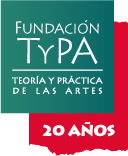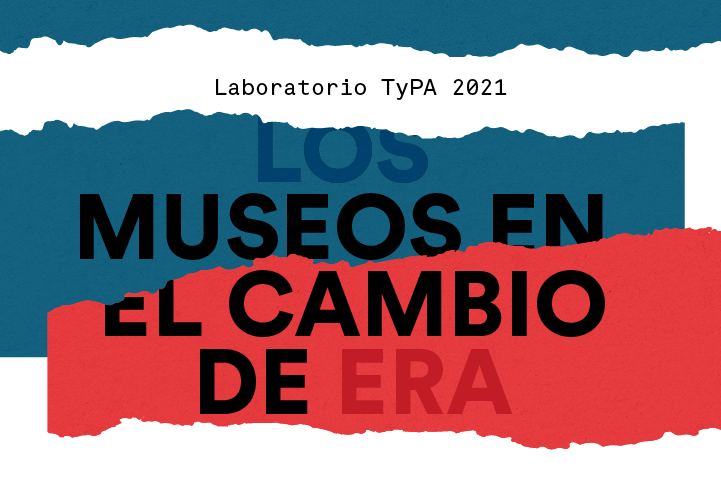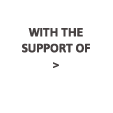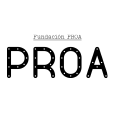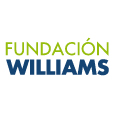The TyPA Lab 2021 in numbers:
- 3 online courses
- 3 open conferences
- 34 speakers
- 129 participants
- 19 countries (Argentina, Bolivia, Brazil, Chile, Colombia, Costa Rica, Ecuador, England, Germany, Italy, Mexico, Panama, Paraguay, Peru, South Africa, Spain, Wales, United States, Uruguay)
- + 30 hours of synchronous online conferences and peer-to-peer interaction spaces
Based on the need to understand the transformations we observe, the TyPA Lab 2021 accompanied theoretical analysis with tools to outline alternative lines of action that may contribute to a better coexistence of interests between professionals from museums and cultural centres.
From April to November 2021, and throughout three consecutive courses, we discussed some key issues to help us activate a conscious and deliberate plan for this new scenario offered for the cultural sector worldwide, with a focus on Latin America. We alternated between conferences and workshops to question our own practice and, in dialogue with experts and practitioners, anchor a series of ideas that may challenge the daze and fears of the present.
Context
The thinking and skills of the Latin American museum community called the attention of the sector in 1972 through the ICOM Santiago de Chile Round Table. At that time, museum professionals from the region interacted with social scientists who provided the values and reasons to radically move museums toward the service and expression of their societies, of which they were considered an inalienable part.
That proposal, adopted and enriched by the Reimagining the Museum Conferences in 2015, 2017 and 2019, was amplified by the current emerging social crisis and by the digital technologies that today are integrated into all aspects of our daily lives. Inequalities persist, and are responsible for a significant amount of political tensions. Education, a potential pillar of inclusion, remains at odds with itself: continually promoting potential solutions to close the social gap and questioning the meaning of learning in present times.
During 2020, the pandemic disproportionately affected people from ethnic minorities. Events such as the murder of George Floyd and the Black Lives Matter movement exposed the racism that remains embedded in our societies, and not just of those of the Global North. Technologies allowed us to maintain social and work related encounters, while increasing our sense of feeling confined, monitored and poorly connected. Online schooling transformed family dynamics and struggled to maintain the current curriculum while demanding alternative learning strategies for this new context.
The Museum, a colonial-modern institution, now in a hurry to expand its digital appearance and uncomfortable with its underlying traditions, was born closely linked to Eurocentric views and an alleged universality currently in crisis. Subjectivities and alternative systems of knowledge, past and present, offer intriguing methodologies to enhance the discussion about museum practices and its social role.
Without seeking to replace a paradigm with its opposite, but rather to add to the museums’ working palette, the “TyPA Lab 2021 - Museums in the Change of Era” encouraged thought without predetermination, eager to avoid substantialist dogmas. It proposed ideas and practical examples that could help us find our singularity, without falling into fundamentalisms. Framed in the change of era, the three online courses stimulated the understanding of our present not just through its tangible social problems, but also via the unconscious framework of thought that defines and generates them. Through each of its discussions, the program aimed to identify the dilemmas that govern this new era in order to find divergent tracks that may help participants to reflect on their own practices. We didn’t seek knowing for the sake of knowing, but rather aimed to understand how to coexist in shared territories.
Program
Course 1 - The Museum Bares its Coloniality
April 5 to May 28, 2021
This course advocated for a possible transformation of the museum into an institution that is both critical of itself and of the logics that reproduce taxonomies caged from new interpretations. It examined the different spaces where the colonial matrix is reproduced: from the exhibition rooms and the selection and arrangement of objects, to the wordings and suggested visitor paths, and discussed alternative ways of generating meaning that propose less unequal relationships of access and participation.
For more details on the first course: https://www.typa.org.ar/en/noticia.php?id=224
Course 2 - The Museum: digital agent or hostage?
July 5 to August 27, 2021
This course invited participants to put analytics aside for a moment, to reflect on the kind of interaction that is sought and obtained through digital connections; and to think about how the Museum may implement a digital strategy without neglecting its social role. It aimed for participants to incorporate a critical framework and build the competencies that will give them the confidence and skills to discuss this process of digital transformation, and place the focus on people.
For more details on the second course: https://www.typa.org.ar/en/noticia.php?id=225
Course 3 - Learning Environments: What’s Up, Old Chap?
October 4 to November 26, 2021
This course argued that museums today face the challenge of generating conversations that are not only about knowledge, but also about the effects that this knowledge has on our lives and our world. It suggested that educational institutions can be more than mute replicas of a given era and instead become spaces where we can discuss possible futures, and build learning not only to understand the world around us but also to transform it.
For more details on the third course: https://typa.org.ar/en/noticia.php?id=226
Open Conferences
The three courses of the TyPA Lab 2021 were accompanied by a series of open conferences, livestreamed through TyPA Foundation's YouTube channel. Three intimate conversations between leading contemporary thinkers about their current concerns and their thoughts about museums in the change of era:
1. “Eurocentrism, coloniality and museums” - open conversation between Rita Segato and Walter Mignolo
2. “Beauty and Ugliness. The Erotic Dimension of the Museum” - open conference with Franco "Bifo" Berardi
3. “Non-submissive Culture. Deviations towards a critical, non-conformist, desiring museum” - open conversation between Suely Rolnik and Ticio Escobar
The recording of the conferences (in Spanish) is available at: www.youtube.com/FundacionTyPA
More information
For more information, please don’t hesitate to contact us at lab@typa.org.ar
